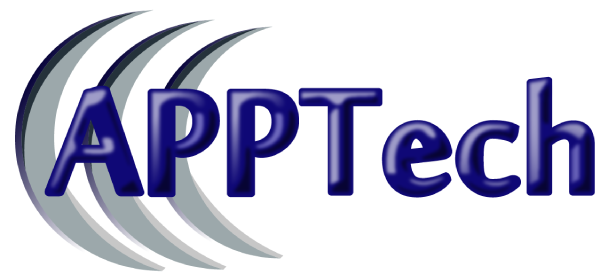Steps to hire a developer
Hiring the proper people is one among the critical components of company success, handily . they're those who deliver excellent work, generate fascinating ideas, overall improve processes, and embrace the corporate values and culture. Indeed, companies are all about people, and that’s why at Apptech, we’re quite picky about the people we hire.
Talented web developers are in high demand right now: everyone needs them, and they’re hard to seek out . But we decided to share our process of hiring skillful engineers to form your life a touch easier. Maybe our tips are just what you would like .
Hiring the simplest Web Developer
An interview is that the best thanks to learn more about the candidate’s personality, knowledge, skills, and expertise. At LeanyLabs, we've one person for soft skill evaluation and one for testing the online development expertise. A tech lead of the project we’re hiring for knows its needs best and typically is that the one conducting the technical a part of the interview.
We love it when other team members also are listening since they're going to be those working closely with the hired candidate. Their opinion also affects our hiring decision.
We don’t mind saving the commute time for a candidate by conducting an interview online, especially during the COVID-19 pandemic. the prevailing sort of communication and collaboration tools is quite enough to simulate the experience of a standard offline conversation. The interview roughly takes up to 90 minutes, but we do skip some topics to save lots of time if we’re sure the candidate is unsuitable for the position.
The Soft Skills Interview
During the interview, it’s vital to observe out for red flags within the person’s behavior. Testing hard skills is comparatively easy when you’re an expert yourself, but with soft skills, things are trickier.
Tell them everything about the vacancy again and appearance at their reaction. Note things that resonate with the candidate. How does that align with the corporate culture? It’s worth asking about their previous work experience. What they liked or didn’t like about it. Why are they switching jobs? Ask them about their contributions and failures. What drives them, and what annoys them? How do they handle teamwork issues and conflicts? Give them a hypothetical situation if they don’t recall examples from their experience.
Make sure the candidates feel comfortable asking any questions during the entire interview. When an individual is active and engaged within the conversation, it’s often an honest sign. confine mind, though, that candidates could be nervous, especially junior developers who haven’t been on tons of them yet.
The whole point of this part is to work out if the candidate would be the proper fit the team and therefore the company, assuming their development skills are excellent. We’re trying to find active doers who deliver, not someone lazy, passive, and with a logical excuse for everything. Good command of English may be a must, and excellent communication skills are an enormous bonus, especially if we’re hiring for team extension.
Web Development Hard Skills Interview
This part usually starts by asking basic inquiries to draw the bounds of the candidate’s knowledge. We gradually dig deeper until the candidate follows. Asking academic questions doesn’t make much sense, so we focus more on the technologies and practices necessary for the position.
Our interviewers prepare a custom plan for each vacancy. As an example, TopTal features a good list of questions for a generic full-stack position in their Web Developer Hiring Guide.
A person’s reaction to not knowing something or being wrong can give us unique information about them. Telling it upfront is far better than trying to form something up and collapse under more details. The latter candidate would write spaghetti code filled with copy-paste from the web without fully understanding what it’s doing first, guaranteed.
If an individual admits they don’t know something but makes logical assumptions rather than lying or guessing, it’s an honest sign since it gives some insight into their thought process. We tend to ask more open-ended inquiries to hear a person’s perspective on the subject and make it harder to organize solely for the interview by reading common interview questions.
After a fast assessment of a person’s knowledge, we attend the planning test problem. It’s usually on the brink of a real-world example of the UI architecture, back-end design, or system architecture, counting on the position. The task isn’t directly associated with the project we’re hiring for but requires an equivalent technology stack, experience, and thought process to unravel . There’s no single right solution, and we’re more curious about the candidate’s thinking process, the mistakes they create , and the way quickly they realize them.
The questions candidates ask offer you a touch of their concerns and what’s happening inside their heads at the instant . If they don’t ask the proper questions, we attempt to lead and push them to understand the mistakes and drawbacks of the offered solution. this is often the foremost critical a part of the tech interview because it’s almost like performing on a quite complex project together. Writing code is simple . Thinking isn't .
We finish the online development interview with questions on the candidate’s most challenging tasks and achievements. It gives us a thought of what the person considers challenging and whether or not they prioritize technical implementation of the feature or the provided business value.
Lastly, we offer samples of the work the candidate could be doing on the work and invite some quick ideas on the way to approach it just to check how relevant their experience is for our position generally .
Candidates usually have some questions we answer after the interview to seek out out more about the project we’re hiring for and our company generally . We instruct them on what would happen next and do our greatest to offer them feedback on subsequent day after the interview. Having an engineering background ourselves, we all know how annoying those week-long delays from most companies are.
Making the Hiring Decision
After the interview, it’s essential to fill out the candidate profile while your memory remains fresh. We keep those profiles because sometimes candidates won't fit the present spot but are perfect for our possible future vacancies.
For example, a full-stack developer could be lacking back-end experience but shines on the front-end. A senior developer might know tons and style great code, but lack experience with modern microservices or serverless architectures required for the project. A middle developer may need excellent hard skills and good written English, but a niche in spoken English, which is critical for the remote team.
We discuss all our hiring decisions with the team. Interviewers share their thoughts, and together we decide if the candidate should go further. It’s crucial to seek out a balance between soft and hard skills. Bad soft skills will ruin the team and undermine the entire company, so it’s better to fireside that person before later. Low hard skills could be a problem if the candidate features a ton of experience performing on previous jobs. they could not learn fast enough, don’t have the will for knowledge, or just are too lazy. Lack of experience may be a big no-no for the position that needs immediate output and not spending time learning new technologies.
We’re able to hire new developers for an MVP team as soon as we’re sure they’re right for us. But when it involves team extension, we arrange another interview with the client’s team first. It’s usually almost like ours, and our team leader also participates to require notes, provide feedback, and discuss the ultimate decision with the client.
There are usually two sorts of good developers: superstars and rockstars. consistent with Radical Candor, superstars are more ambitious and always want to grow, while rockstars are just damn good at what they are doing and need to stay doing it. Rockstars are excellent, reliable deliveries with incredible technical expertise. Superstars want to be closer to the business, be more on top of things , and aspire for managerial positions.
We keep this in mind when hiring and check out to balance our company with both types. It’s not as important as other factors when selecting candidates for a replacement position, but it plays a big part in our company’s future career development. Overloading rockstars with new responsibilities just doesn’t work, while they’re better than superstars at what they are doing most of the time.


Leave a comment
Your email address will not be published. Required fields are marked *